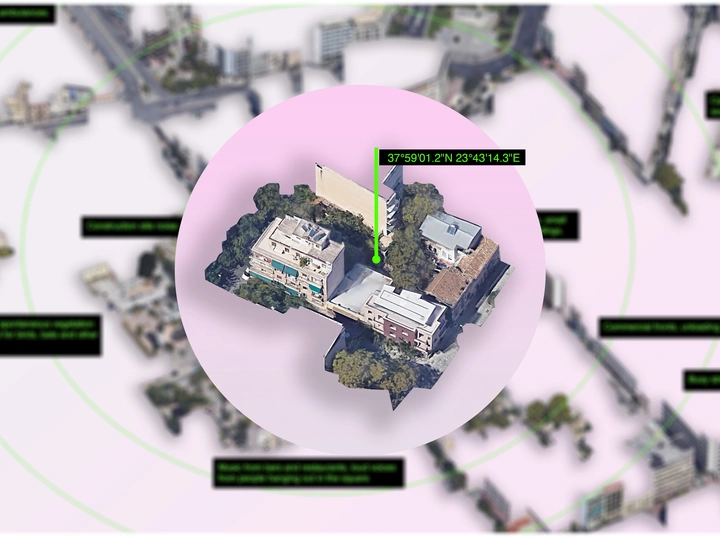Sound Ecologies

Federico Godino graduated in architecture from the Politecnico di Milano and the University of São Paulo, Brazil. In 2019 he was assistant curator at the Triennale Museum in Milan and worked with OMA on the "Agenti Climatici" masterplan in Milan. From 2020 to 2023 he worked as a planner at Stefano Boeri Architetti. In 2020 he curated the urbanism programme of the Zones Portuaires Festival (Genoa). From 2020 he was a teaching assistant and tutor at the Politecnico di Milano and in 2021, with a research grant from the same university, he developed an interactive website to map Instagram posts in the city. In 2022, together with Ilaria Brianti, he founded Landscapes for Holidays. As Landscapes for Holidays he organised the first exhibition in 2022 and a three-day festival in 2023, commissioned by the Italian Ministry of Culture. His video research 'Cobalt Blue' was shown in the Climate Wunderkammer at the 2023 Venice Architecture Biennale: the work consisted of an investigation into the global cobalt economy and its impact on the Alpine regions of northern Italy. From 2023 he collaborates with the online magazine Koozarch as editor of a publication on climate change in the city of Milan. He's a consultant for EU-funded research projects (HERITACT, ELABORATOR) for Stefano Boeri Architetti. In 2024 he graduated from OPI lab, a postgraduate course focused on artistic research in public space, organised by the Royal Academy of Art in Sweden. His practice focuses on narrative formats (video - sound - installation and exhibitions) to investigate issues related to human and non-human living environments. Issues related to climate change and the coexistence of different groups are at the core of his interest.
Sound mapping is a way of understanding the complex ecologies of urban areas and the needs of underrepresented groups. It is a form of research that requires physical presence, patience and a commitment to listening, aspects that already define the practice as inherently political. Accessibility for the visually impaired, the balance of acoustic signals from different species, access to quiet public spaces for low-income communities: all these challenges can be read in the soundscape of an area. And unlike other mapping techniques, it creates a unique empathy with the listener, based on a shared physical experience of sound.
Since January 2024, I have been conducting a sound mapping experiment, starting from three cities I know: Milan, Rome and Athens. This was the simple methodology:
Choose a significant site for a city, a place where different interests and ecosystems collide.
Explore the area through sound, moving around with headphones and directional/environmental microphones. (e.g. a Zoom H4 and Sennheiser MKE 600)
Find a spot and record for 30 minutes. Stay still and quiet near the microphone. Make notes of the sound sources you can identify on the spot.
Listen back in the studio to complete the information on the sound sources identified.
This practice has been refreshing for my approach to mapping and has helped me to shift my positionality in several projects I have worked on, identifying and addressing hidden or underrepresented instances.
Two examples: first, in a joint research project between Politecnico di Milano and KKH, I found audio evidence of endangered animals in the area of Gröndal (Stockholm) and developed a series of audio/sculptural installations.
The second was a project developed for the National Gallery of Modern Art in Rome (GNAM), where I realised an installation with sounds recorded in the nearby park of Villa Borghese, creating an acoustic space to meet the needs of visitors with autism spectrum disorders (ASD).